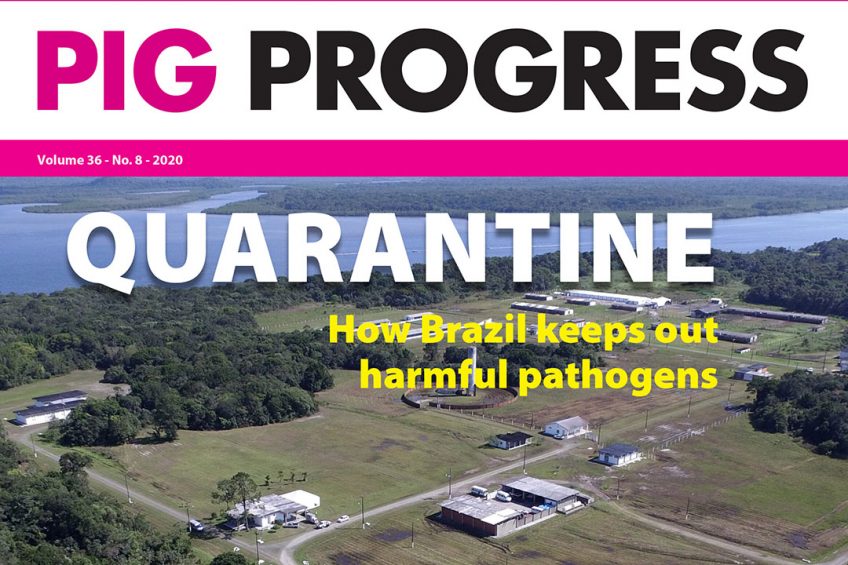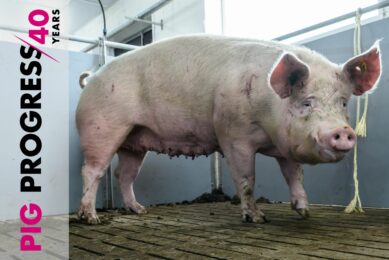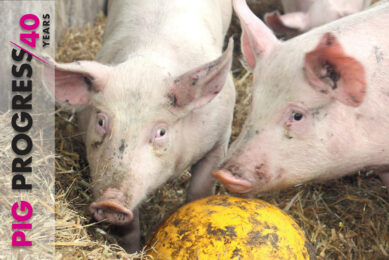Piglet health, probiotics and protection in Pig Progress 8

The 8th magazine edition of Pig Progress is available for readers to access – with attention for the way Brazil protects its pig herd from major pathogens, how Ukraine’s pig industry has benefited from the Covid-19 pandemic, and how bacteria can enhance piglet growth.
View Pig Progress digital magazine
Protecting Brazil from pig diseases
Thanks to the Cananéia Quarantine Station, Brazil has managed to keep many major pathogenic infections at bay, making the pig industry somewhat of a “sanitary paradise”. What is the current structure of the quarantine station, and how does it work toward keeping the country’s pigs healthy? Correspondent Daniel Azevedo Duarte had a look behind the scenes. Page 6
Oedema disease – correct sampling is crucial
Oedema disease in weaned piglets is one of the most costly diseases in the rearing period. There is no adequate treatment for infected animals and so prevention is particularly important. A study in Germany has shown that shigatoxin-producing E. coli are more common than expected. Various experts from 2 German leading universities share their experiences, as from page 10.

Enhancing pig herd health in a dash
This EU PiG Innovation ambassador developed a dashboard-like system in which data from different areas of pig farms (biosecurity, vaccine and antimicrobial use, nutritional practices, health and welfare status in farm and productive performance) has been integrated. Correspondent Natalie Berkhout reports on page 12.

Probiotics and butyrate: An alternative approach
Probiotics play an active role in supporting and improving existing microbiota, writes Wouter Van Der Veken, Huvepharma, on page 16. However, certain probiotics might be better adapted to support specific locations in the gastrointestinal tract, and the absence of butyrate creates an indirect competitive advantage for multiple opportunistic pathogens.

How viruses shaped a new reality for Ukraine
In an interview with correspondent Vladislav Vorotnikov, Oksana Yurchenko, president of the Association of the Ukrainian Pig Breeders, explains how commercial pig production in Ukraine actually benefited from the Covid-19 pandemic. Page 18

View Pig Progress digital magazine
Five years of experience at Flemish trial farm
The Flemish Institute for Agriculture, Fisheries and Food established its own pig farm five years ago. Correspondent Rene Stevens describes as from page 22 how vast experience and new possibilities from the field have been gained.

Helping piglets to adapt faster after weaning
The weaning gap can lead to a wide array of problems, so getting piglets accustomed quickly to their new surroundings is necessary. After weaning, how can a piglet’s gut be helped to perform its new role better? Alltech’s Dr Jules Taylor-Pickard gives the answer on page 26.

Energy boost for sows and piglets
A recent trial revealed that sows were better able to maintain their body condition when fed an energy booster including lysolecithins, which resulted in a lower number of stillborn piglets and better fertility in sows. Framelco’s Olga Dansen zooms in on lycolecithins on page 28.

Improving microbiota while preventing inflammation
At first, a piglet’s organs will consider new feed as an antigen. The adaptation can generate local inflammation and oxidative stress in the gut. Wisium, part of ADM, developed a patented combination of plant extracts and Copper Exchanged Clay that act on the gut microbiota modulation and on the modulation of intestinal inflammation. Pauline Pourtau explains more as from page 30.

Can bacteria enhance piglet growth?
There is a significant difference between good and bad bacteria. Some of these good bacteria are spore-forming Bacilli. Trials using in-feed probiotics consisting of two bacterial strains, Bacillus subtilis and Bacillus licheniformis, was conducted. An improvement in ADG occurred in 97% of the trials, writes Lena Raff on behalf of Chr. Hansen on page 34.
Working on feed biosecurity with the ice block challenge
Correspondent Treena Hein reports about a study evaluating 15 commercial additives, from essential oils to formaldehyde-based products, to determine their effect on mitigating certain viruses in contaminated feed. Using a new research model called an “ice block challenge”, researchers inserted equal concentrations of SVA, PEDv and PRRSv into feed treated or not treated with additives. Page 36

Mineral source and immune response in nursery pigs
Trace minerals, such as zinc or copper, play an important role in the immune system and are essential for animal performance, write authors Naiana Einhardt Manzke and Alice Herbert on behalf of Microutrients and Trouw Nutrition respectively. Piglets fed a higher quality source of trace minerals during a chronic immune challenge produced fewer pro-inflammatory cytokines. Page 38

Compassion fatigue
In this column, Dr Monique Pairis-Garcia discusses the unique challenges faced by caretakers who are not only asked to treat and manage animals, but to also euthanise those animals that they have been caring for. Page 42
To read the full articles, simply click on the digital magazine section and then on Pig Progress 2020-8. Registration is free.











